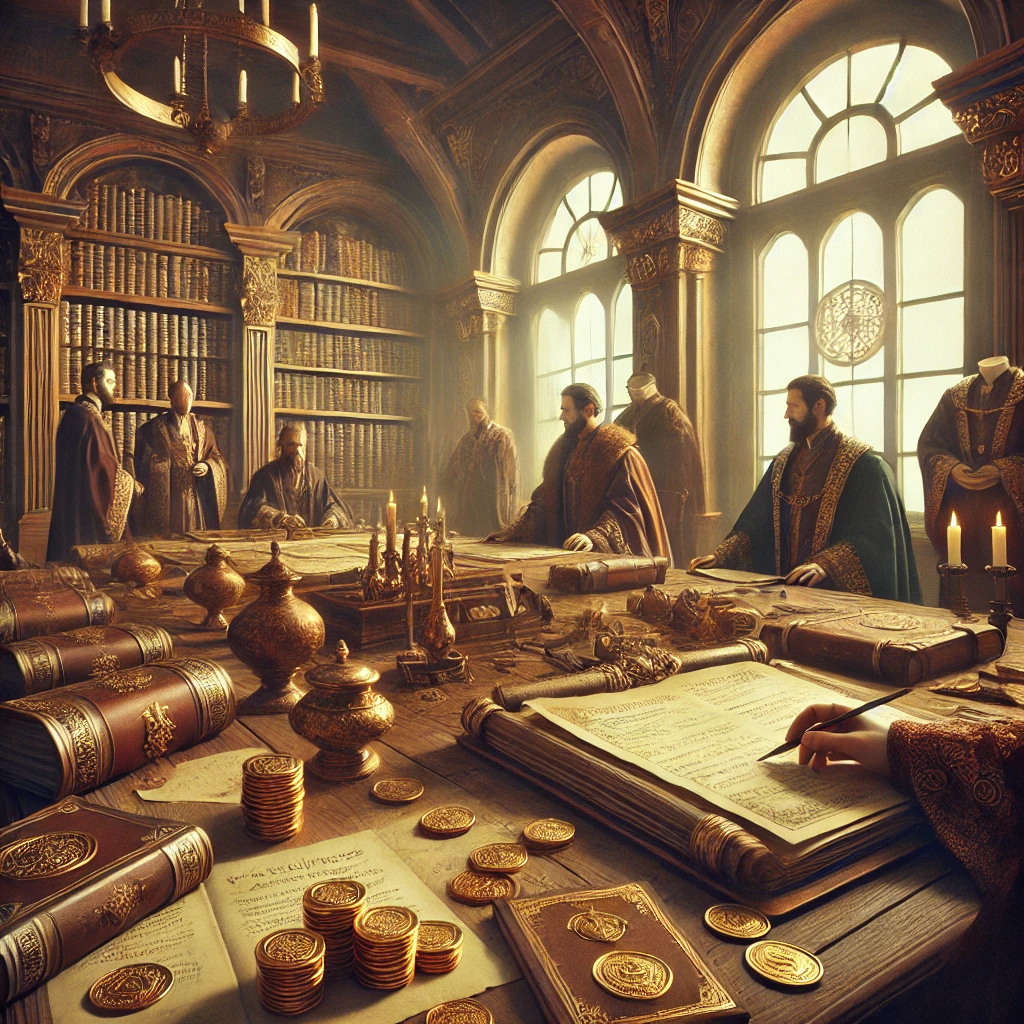Origins and Rise
During the golden age of the Kingdom of Riverhold, a new force quietly reshaped the realm—not through conquest, but commerce. The Merchant and Craftsman’s Guild emerged from the bustling markets and forges of the realm, united by vision, precision, and the belief that prosperity could be shared.
Their rise was no accident. It was the result of sharp minds and careful hands, of strategic decisions made in candlelit workshops and across crowded trade halls. From the frost-covered north to the sun-kissed southern coast, the Guild’s web of trade grew, binding the kingdom in goods and gold.
The Charter and the Craft
At the heart of their ideology lay The Charter, a revolutionary doctrine drafted by the Guild’s wisest founders. It redefined prosperity—not as exploitation, but as mutual gain. Instead of squeezing suppliers for every coin, the Guild paid premium prices for the best goods, encouraging quality, loyalty, and excellence.
This long-view strategy earned them more than profit. It built a legacy. Farmers, hunters, and smiths saw the Guild not as overlords, but as partners. In return, the Guild received the best of
Elysoria’s bounty—and the unwavering goodwill of its people.
“We pay for more than product. We pay for pride.” — Traditional Guild proverb
Across the realm, the Guild’s arrival was met with celebration. To host a Guild merchant was an honor; to lose their trade was near calamity. They became more than traders. They became patrons.
Quiet Power
Though peace was their preference, the Guild was never defenseless. A private corps of agents protected trade routes, ensured safe passage, and kept rivals honest. They were trained in discretion, diplomacy, and deadly efficiency.
When
The Holy Dominion rose and civil war swept the land, the Guild did not collapse—but adapted. Though not directly targeted, their estates and storehouses were ripe for seizure. Many of their most influential members vanished before the worst arrived, taking their fortunes with them.
Vast resources were hidden: in mountain vaults, beneath lakebeds, or with trusted allies in distant lands. The Guild faded from prominence—but adapted swiftly, continuing to operate through quieter, more cautious means.
Present Day
In the shadow of
The Church, the Guild lives on. Fewer in number, but no less sharp, its members continue to shape
Elysoria’s future in whispers and coin. Underground economies flourish with their support. Resistance factions find anonymous benefactors. Secrets are traded as deftly as spices.
They are no longer openly the proud lords of trade—but they are still its stewards.
“A forge may cool, but the fire beneath never dies.” — Guild saying
Now, as the world begins to stir, so too does the Guild. With deep knowledge, patient alliances, and a belief that excellence must be earned—not seized—they prepare to step once more into the light.
Not as kings. Not as conquerors. But as builders.



Comments